Schools in Lviv take in people fleeing war from Ukraine's east and south
About 2 million people are internally displaced in Ukraine, United Nations says
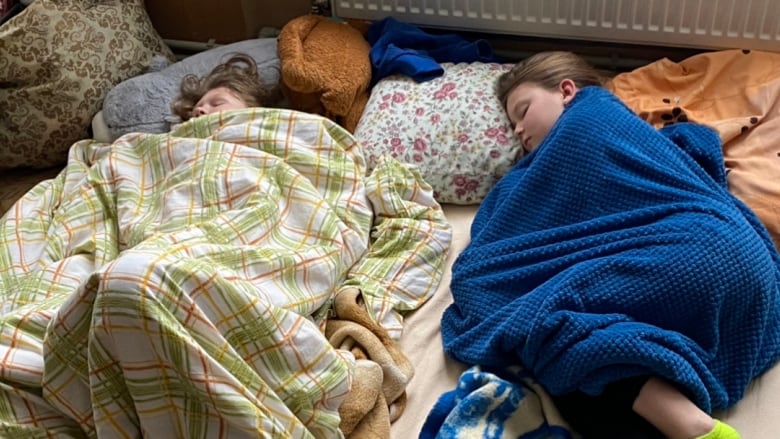
The bells don't ring at the schools in western Ukraine now. The halls are mostly empty. The schoolyard is silent.
Before Russia invaded the country on Feb. 24, 1,100 students walked the halls of one white brick building in the suburbs of Lviv, about 70 kilometres from the border with Poland. Now, 86 people who've fled from Ukraine's east and south call it a temporary home a scene that is repeated across the city.
According to the United Nations, there are about two million internally displaced people in Ukraine, on top of the more than three million who have fled the country.
Small chairs and desks with green legs sit in piles around the school. They have all been removed from the classrooms on the first floor. Instead there are people mostly women and children sleeping on mattresses laid on the floor beneath chalkboards and containers of crayons. Bunk beds have also been hastily installed.
"We used the last train out. The tracks were destroyed, so the train detoured for three days. It was very scary," said Yulia Derun, interrupting morning story time with her seven-year-old daughter, Albina.
They have been in Lviv for a week now after their terrifying escape from Luhansk, a Ukrainian district, or oblast in the east of the country hit hard by Russian forces. Derun said she didn't leave anyone behind back home.
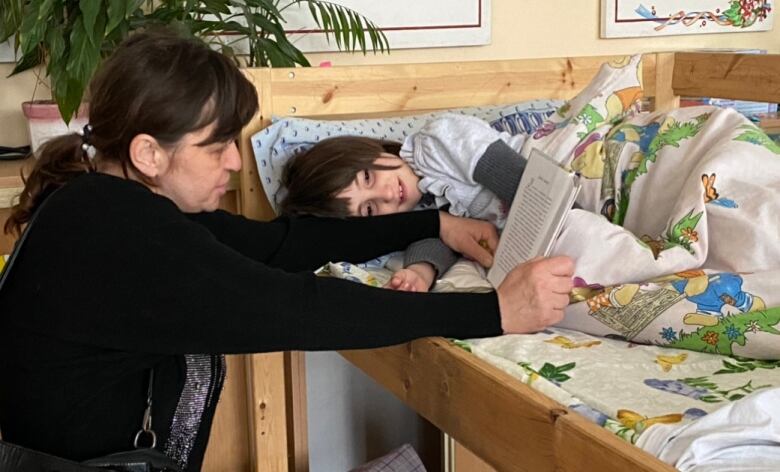
Albina's eighth birthdayon Friday will be marked living far from home, far from any other family, in a city she'd never visited until war forced it upon her.
Like the Deruns, so many have come through long journeys and seen the horrors of war. Some of the displaced children sleep through the lessons being offered upstairs.
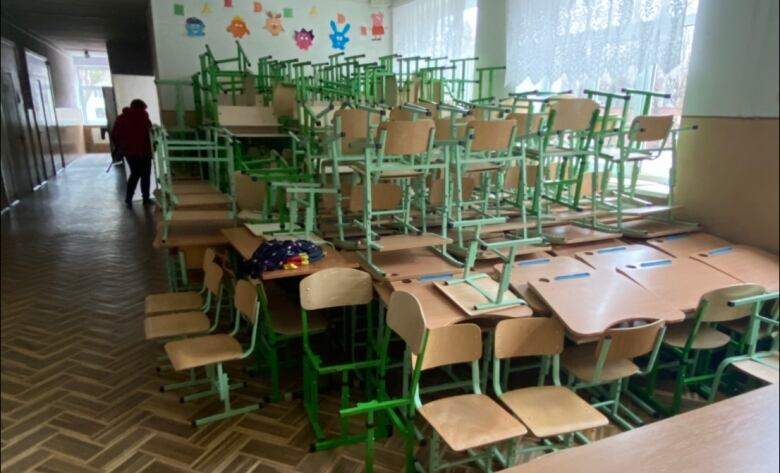
Children in Lviv 'want to be useful'
On the second floor, class goes on by videoconferencing. This is a first for the students. In other countries, the COVID-19 pandemic pushed school online, but that didn't happen in Lviv. Now it has become a necessity because of the war.
Students aged four to 17 who live in this neighbourhood don't attend classes in person, both because of the displaced people living there and capacity in the shelters used by the school so there's not enough room as air raid sirens ring throughout the day.
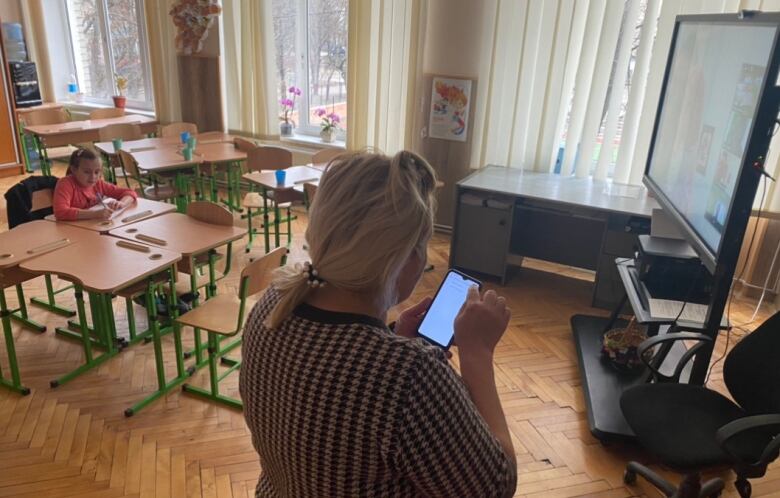
This is a school where the imagery of war has never been a secret. Vasyl Slipak, a famous Ukrainian opera singer who attended the school, was killed in the conflict between Ukrainian forces and Russian-backed separatistsin the region of Donbas in 2016. There are portraits of him around the school, as well as images from the front lines of the conflict lining the walls.
There are fears from those running the facility, and those living inside, that naming the school or showing photos of the exterior could make the building a target, so CBC News has agreed not to reveal its name or exact location.
The students who attend here are patriotic, and they will sometimes turn up at the school's front door to ask how they can help, said English teacher Tetina Petrashun.
"[They] ask about what we can do for our school, what we can do for refugees," she said. "So they want not only to study, they want also to help, and after the lessons they come here and try to do something."
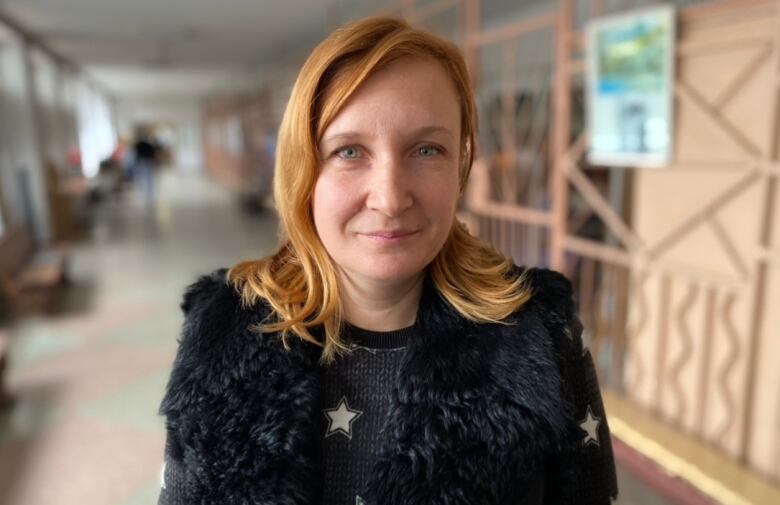
Petrashun said the children living in Lviv have been very brave.
"[The children] want to be useful," she said. "They don't cry or think, 'Oh, it's terrible.' They believe in their good place in this society, in our society."
Mother and son fled, father stayedbehind
As breakfast is served in what would normally be the lunchroom, Yulia Zaharchenko sits with her nine-year-old son,Andriy. She picks slowly at a red plate with a piece of bread. Her mind is far from this place. It's their fourth day living in a classroom.
"When the fighter jets started to fly over us and started to bombard the town and the closest region, we decided to leave," Zaharchenko said through a translator.
She and her son drove in a car with four other people to get to Lviv. It took them two days to drive the 900 or so kilometres between the two places. They chose this area of Lviv because relatives from Kyiv were already staying nearby.
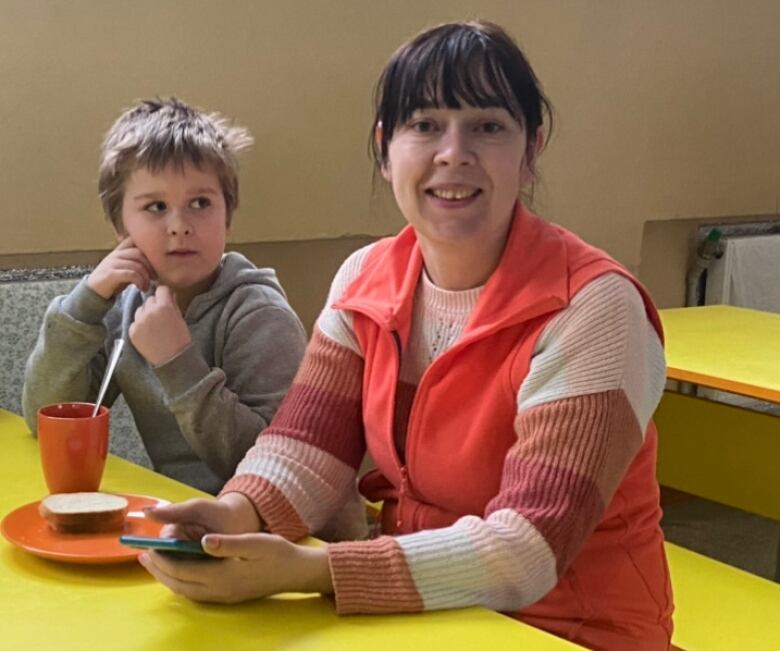
At about 9 a.m., she takes her first call of the day from her husband, Alexander. As a man of fighting age, he stayed behind in battered Sumy, near the city of Kharkiv, to defend the district.
"There was shouting at night, very loud, now it is silent already," he said over speakerphone.
They will speak two to three more times throughout the day.
"OK, honey, I love you, kiss you," he says before she hangs up.













_(720p).jpg)


 OFFICIAL HD MUSIC VIDEO.jpg)
.jpg)



























































































